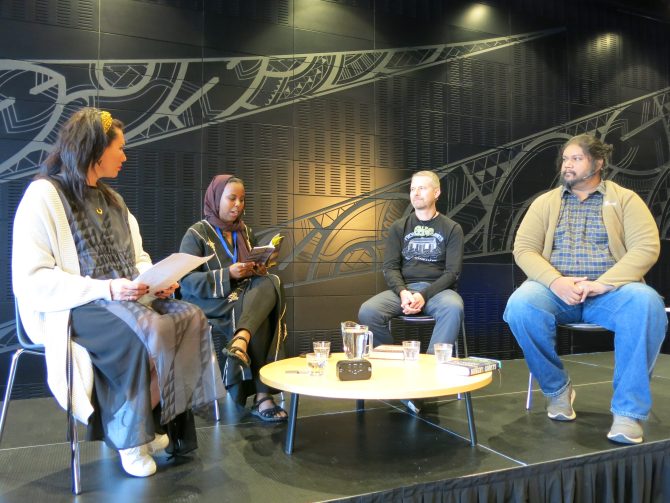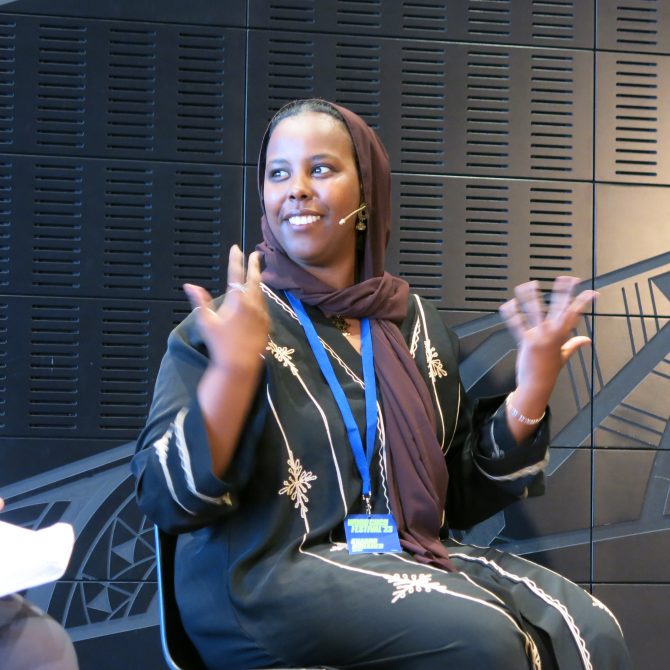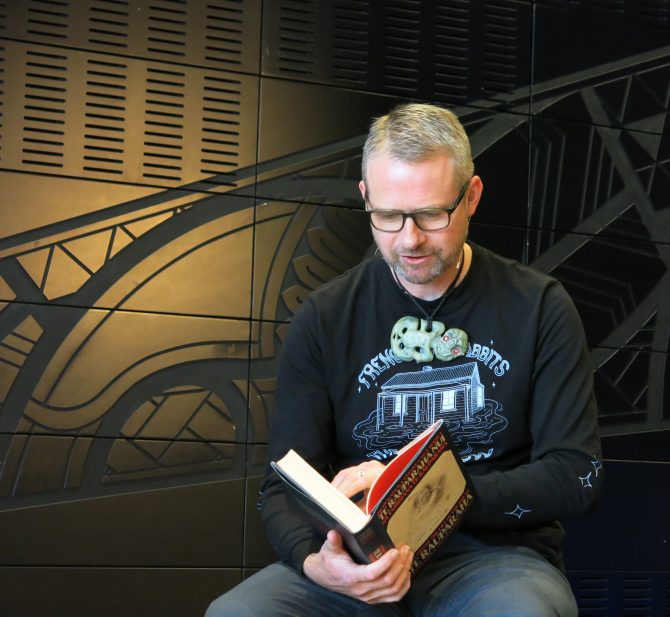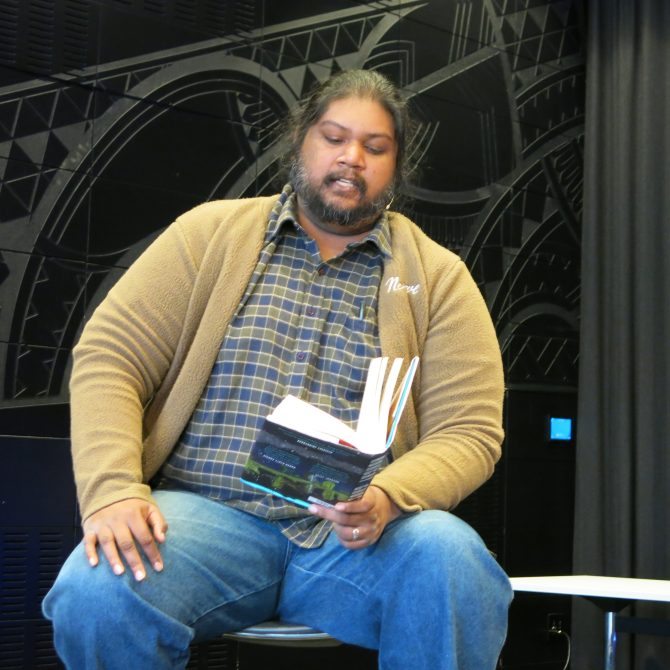Catarina de Peters Leitão is one of WORD's programmers at large, and the Writing on the margins session is her mahi:
The art of challenging readers often comes through stories written from the outside looking in and unexpected places – I’m excited to be curating this panel discussion examining the retelling of history, colonisation and guiding readers through different worlds with Khadro Mohamed, Kevin Jared Hosein and Ross Calman.
Kevin Jared Hosein is the author of the powerful novel Hungry Ghosts set in 1940s Trinidad, (not a location and time I'd encountered before in a book - it's incredible). Khadro Mohamed's award-winning poetry debut We're all made of lightning "expertly navigates the experience of being a Muslim woman in Aotearoa, bringing us along on her journey of selfhood". The other panellist is Ross Calman who has translated the stories of Te Rauparaha’s life in He Pukapuka Tātaku i ngā Mahi a Te Rauparaha Nui to wide acclaim (Te Rauparaha is his tipuna). Arihia Latham is the session chair - her debut book of poetry Birdspeak has just been published.
This was a wide-ranging discussion about "re-indigenising through our words, decolonising and re-indigenising the page". This naturally leads to stepping away from the margin, the edge, into the centre - a place of power.
Arihia asked "How does your heritage challenge the norms of literature"? Khadro goes through times when she doesn't want to be a minority. She wrote during her "sad girl era", coming in with anger but feels more confident now.
Ross has arrived at a huge distrust of the published word. In his working with Te Rauparaha's son Tamihana's manuscript, he saw how over time Pākehā had taken out pieces for their own ends. There's a great article in E-Tangata about Ross called The truth in our stories with more about this, and his work on the book.
Kevin Jared Hosein paraphrases an African proverb:
Details of the hunting of the lion are designed to glorify the hunter not the lion.
In Caribbean culture, a lot of grief and shame are not addressed. His book is about sadness, and it is a release putting it into words. There is a discussion about grief between the panel, about how different cultures feel and express it. Khadro speaks about living in Wellington after the March 15 Mosque attacks. She visited the Kilbirnie Mosque and people kept saying "I'm sorry" to her. "Why are you saying sorry to me?"
Ross talks about te ao Māori and how in some cases when men meet their first act is to weep. Kevin is fascinated by the idea of men gathering to weep, and wished Caribbean and South American men could do this too. The idea of designated opportunities for weeping and release (in gatherings, at spoken word poetry events) is teased out and explored by the panel.
The final topic of discussion was about getting published, and trusting a publisher with your work. Khadro talked about getting rejected by two publishers, but then working with Tender Press. Her manuscript was personal and she had a crisis when they agreed to publish. Poetry leaves little room to hide, and the writing is deeper when there is no initial intention to share:
My poems are literally me on a page.
Ross also felt like this - there was so much of himself in the book. Auckland University Press won his confidence:
It's difficult handing over your baby to someone else to bring it into the world.
Kevin found publication a deep uphill climb. Writers from the Caribbean often to move away to get published. To be published takes you away from the margins:
When you put it out there, it's no longer yours - it belongs to the world.
He Pukapuka Tātaku I Ngā Mahi A Te Rauparaha Nui
Find out more
- WORD Christchurch website and 2023 programme
- Our WORD Christchurch 2023 page
- Follow @WORDChCh on Twitter
- Follow WORDchch on Instagram
- Like WORD Christchurch on Facebook
- Listen to WORD Christchurch podcasts








Add a comment to: WORD Christchurch 2023: Writing on the margins